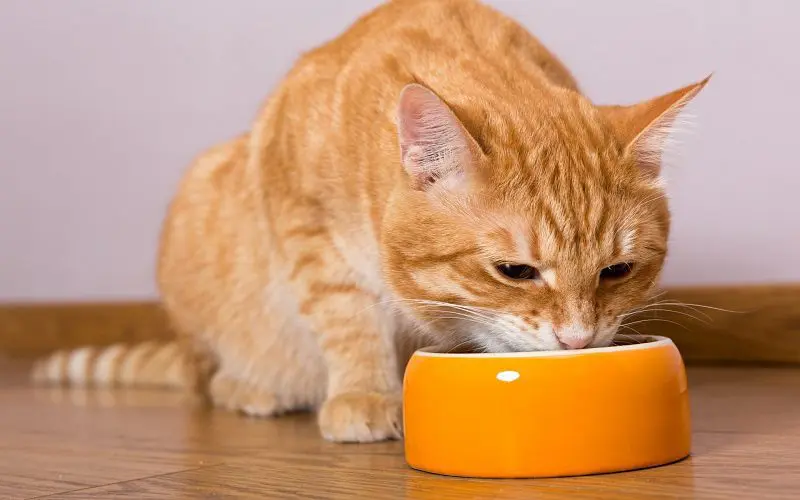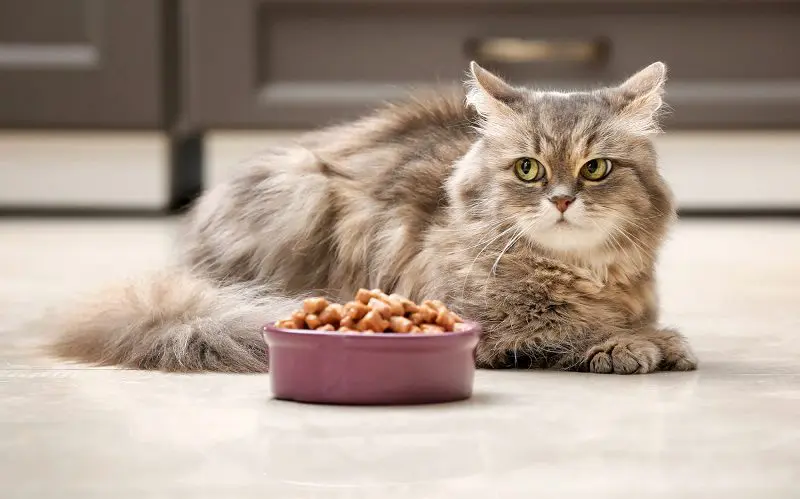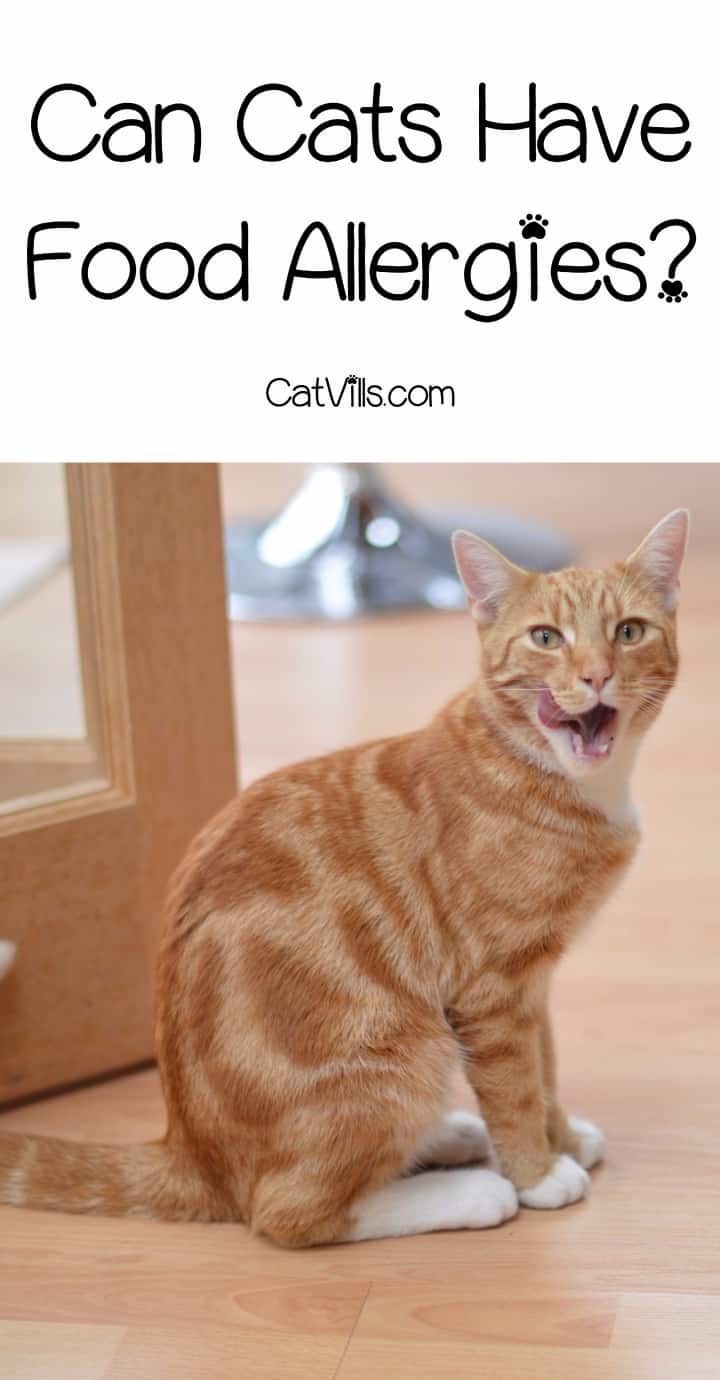Last Updated: 3 months ago
Food allergies in cats are a real thing. In fact, they’re the third most common allergy in cats, behind environmental and inhaled allergies.
That is incredibly important for all cat owners to be aware of because so many people don’t realize that cats can be allergic to food.
Cats have an almost myth-like presumption of indestructibility surrounding them, but the reality is that they can get sick just like other pets.
So let’s go over what you need to know about food allergies in cats.
Food Allergies vs. Food Sensitivity

Just like dogs, cats can have food allergies or food sensitivities, and it’s important to know the difference.
Food allergies involve a whole-body response to an ingredient in their food, which causes a cascade of reactions most commonly associated with the skin.
Conversely, food sensitivity is a localized response occurring in the cat’s GI tract due to an inability to properly process certain food ingredients.
Food Sensitivity
Food sensitivity is an inability to adequately digest certain ingredients in the food.
It’s the cat equivalent of humans eating something that doesn’t agree with them. They are not allergic to the ingredient, however, their GI tract cannot process it which leads to discomfort and GI symptoms.
GI symptoms include:
- Diarrhea
- Vomiting
- Gas
- Loss of appetite
- Abdominal pain
- Poor body condition
Food Allergies
Food allergies are completely different from food sensitivity. Food allergies are a systemic reaction to a food ingredient that causes a release of histamine and other allergic bodily responses.
Unlike food sensitivity, which is a cat’s inability to process a certain food, food allergies are a total body response to an allergenic cause.
Symptoms of food allergies in cats include:
- Itching
- Excessive scratching
- Red, inflamed skin
- Chronic ear problems
- Skin lesions – usually around the head and neck
- Hair loss – again, usually around the head and neck
Food Allergies In Cats Treatement

The treatment for food allergies in cats typically involves a strict elimination diet. This means that the cat is fed a diet that does not contain any of the proteins or ingredients that trigger their allergic reaction.
The elimination diet can last for several weeks to several months, depending on the severity of the allergy.
During the elimination diet, it’s important that the cat doesn’t consume any other foods or treats, including those that might contain small amounts of the allergen.
This can be challenging for some cat owners, as cats can be notoriously finicky eaters. However, sticking to the elimination diet is crucial to properly identify and treat the allergy.
In some cases, a veterinarian may prescribe medication to help manage the cat’s symptoms while on the elimination diet.
Antihistamines and corticosteroids can help alleviate itching and inflammation, while antibiotics may be necessary if the cat develops secondary skin infections.
Once the elimination diet is successful in identifying the allergen, the cat can be gradually transitioned to a new diet that does not contain the problematic ingredient.
This may require some trial and error, as it can be difficult to find a diet that the cat will tolerate and that meets all of their nutritional needs. In some cases, a prescription diet may be necessary.
It’s important to work closely with a veterinarian throughout the treatment process for food allergies in cats. They can provide guidance on the best elimination diet for your cat, as well as monitor their progress and adjust treatment as needed.
What to do About Food Allergies in Cats

If you suspect your cat has food allergies, the first thing you need to do is take her in for a thorough exam from your vet.
The symptoms of food allergies in cats can also be caused by other things such as mites, mange, or fleas so a complete, head to toe once over from your vet is vital to determine what’s going on with your cat.
If your vet determines that your cat has food allergies, they’ll help you begin looking for food specifically designed to address food allergies in cats.
These foods will use protein and carbohydrate sources not found in commonly available, over-the-counter cat foods in order to help reduce or eliminate the allergic response altogether.
So see your vet if your cat is showing any allergic symptoms because food allergies in cats are nothing to ignore.
Have you ever dealt with food allergies in cats? Share your experiences below!


